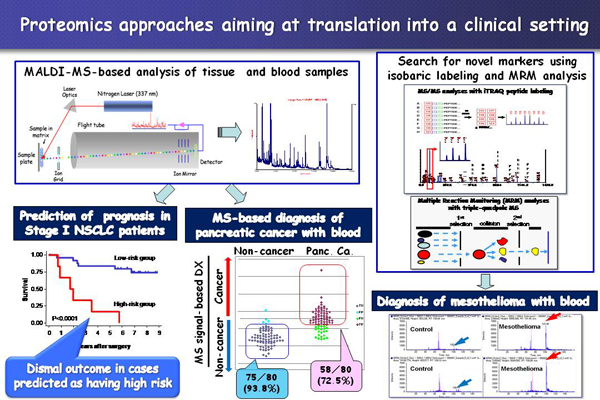▽Research
Proteomics approaches aimed at clinical translation
There is no doubt that proteomics approaches have great potential as a means to elucidate the underlying molecular mechanisms of cancer. Our emphasis in this area of research has been placed on translational research, such as development of novel diagnostics and molecular target identification. We have identified a highly accurate mass spectrometric signature consisting of 25 signals that can be used for predicting outcome in surgically treated non-small cell lung cancer patients. Pancreatic cancer and pulmonary mesothelioma are other typical “hard-to-cure” cancers that are currently receiving attention in our laboratory in order to develop novel means for early detection of these malignancies, which are often not discovered until the late stage of development.
Our technical advantages in proteomics analysis are also being utilized in basic research projects. Identification of hypoxia-inducible factor (HIF)-1? as a novel direct target for miR-17-92 is one such example, which was accomplished through global expression profiling by tandem mass spectrometric analysis using an isobaric tagging reagent combined with bioinformatics target prediction.

